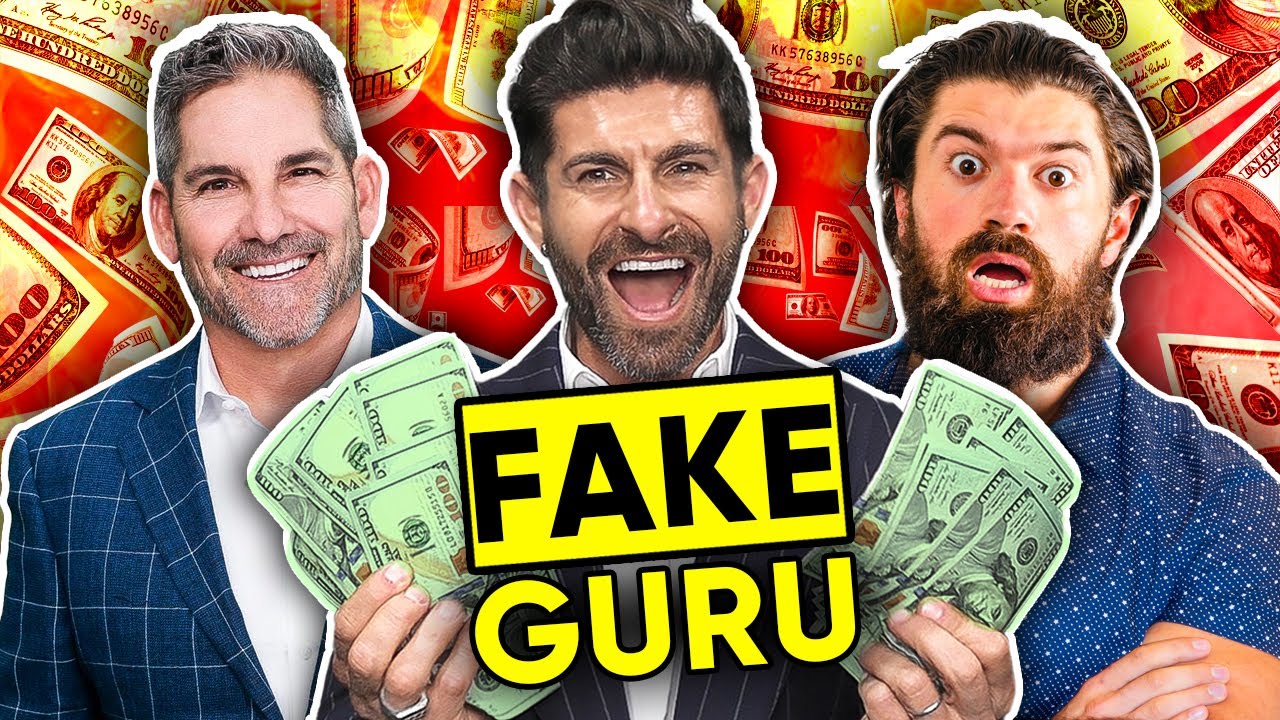
People worldwide are being duped by fake gurus and scammers peddling their ‘secrets’ to wealth and success. Many fabricate personal experiences to appear like they are authorities on a subject and then charge astronomical amounts for courses hurriedly put together in the chase of a quick dollar. They often make more money selling these courses than from their actual business.
Fake internet gurus know that many people are desperate to change their lives. They often relate to their target audience by recognizing their struggles to appear relatable, and unfortunately, this tactic makes falling victim to a scam much easier.
Do not believe the hype that every man has life, finances, and success figured out at 22 years old. I’m 47 years old, and I am still trying to figure it out. Keep your eyes wide open and be willing to do what is right instead of easy. Do not believe false prophets or people who say making money is easy. If anybody tries to tell you that it’s easy, you need to run the other way. Do not give them your money.

The internet is full of fake gurus who claim they have figured it out and will teach you. Before buying anything, do some Google searches. Very little, if anything, that these gurus are teaching you is for free. Do not pay them or go to their classes or seminars. If someone has a ‘secret,’ they are taking your money. Get a mentor. Mentors are free and actually have relationships and experience in your industry.
Fake gurus started trending harder since the pandemic since people had more time and opportunities to start side hustles and small businesses. Couple that with the rise of social media, and these fake gurus realized how profitable this audience could be. They began creating courses, especially seeing the demand from people messaging them about how they started their business, became successful, and became wealthy.
Much bogus information is out there from these fake gurus, and it will continue because people yearn to call themselves entrepreneurs. Despite the whole hustle culture, most people are not built for entrepreneurship. If I’m being honest, nothing is wrong with getting a great job with weekends off. But be bold and take risks because nothing significant was accomplished without being scared and uncomfortable.
Think about it — where’s the successful business backing these gurus if 90% of their income is from selling courses? And a lot of kids fall for that. They see someone like Jeff Bezos and want to be like him, not grasping the fact that to be Bezos, a few hard skills need to be learned, which doesn’t include watching a guru’s YouTube course on dropshipping.

Just keep asking, “If this person is successful at their business, why do they need to supplement their income with teaching?” Sure, every now and then, a few good people share their credible and valid knowledge for the common good. Still, almost invariably, the answer will be that their income is these courses rather than their business.
If you can find a legitimate answer as to why these gurus spend their time teaching and not working on their businesses, and that answer satisfies you, maybe they’re worth learning from. But in almost all cases, the courses make them more money than the business; otherwise, they would spend all their time on the business instead of teaching. And if that weren’t the case, would you really want to learn from someone who mismanages their time by doing the thing that brings them less income instead of focusing on their business?
A barrier to entry essentially stops one person from entering the same business. Low barriers to entry mean anyone can start the same business in a few days, which is not entrepreneurship. For example, my friend has a medical practice. The barrier to entry is a medical license. If you see a course offering a business or solution that has a very low barrier to entry and claims to have a very high compensation, that is almost certainly a scam.
Real businesses are challenging to create and require either capital, skills, or both. Guru businesses are easy to start and require little capital. But if something is easy, you’re one of many trying to do the same exact thing. And before you know it, nobody needs what you’re selling because 100k other people are selling the same. These template-like businesses are chasing a carrot (aka money) that bolts every single time.

Think about it. If anyone could start a business and make seven figures, then the industry would be swamped with people doing the same job making seven figures. Eventually, someone would work for less than seven-figures, accepting six figures for the same work. That number would progressively get undercut until no one’s making money.
And most people who buy a guru’s course only consume some of the information. Most watch/read/ try for a week, then quit. But don’t get me wrong; some hustlers can start a career from the information and do well. Why? They put in the hard work, follow through, and are persistent. They take the info and use it to problem-solve. Like everything in life, you get out of it what you put into it. But will they end up flying around in a private jet like the guy who sold them the course — most likely not.
All in all, the content of these courses contains a ton of crap, especially with Multilevel Marketing (MLM). With MLM, skills and social networks are needed, and you must pretend the product is yours to get people to buy your product. Basically, your friends and family will end up tapped out and annoyed. Instead, you can make more money selling something you created, such as through digital marketing, than venturing into MLM.

If you really want to take a course from someone online, look for coaches or mentors who directly work with one-on-one or small groups. Sure, a course is fine, but direct interactions should be included so questions can be asked and information can be customized. And just because someone sells a course or coaches doesn’t mean the content is credible or worthwhile. A simple way to spot scams is: if it’s too good to be true, it is BS.
Don’t get your advice from gurus. Most entry-level business ideas come through common sense. If it’s something niche, do everything you can to avoid paying for individualized courses, as you can find hundreds of FREE business and sales podcasts.
Fake gurus are everywhere, but there are some legit business people out there. Only trust content. Go through the person’s blogs, videos, and podcasts to see if you like the free stuff and the delivery. Tons of real experts are out there, and they’re usually so filled with good and actionable info that they’re constantly spilling it in their content. They want you to win from the free stuff.












